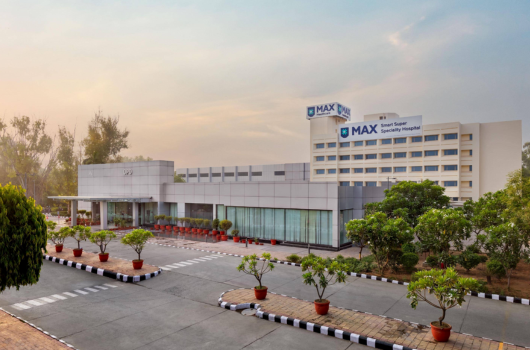
লিভার ট্রান্সপ্লান্ট চিকিৎসা বলতে ক্ষতিগ্রস্ত বা কাজ না করা লিভারকে একজন ডোনারের সুস্থ লিভার দিয়ে প্রতিস্থাপন করাকে বোঝায়। যখন লিভার আর কাজ করে না এবং ওষুধে কোনো উন্নতি হয় না, তখন চিকিৎসকেরা এ প্রক্রিয়া করেন। সঠিক সময়ে করা হলে এটি জীবন বাঁচাতে পারে।
অনেক রোগী ও পরিবার এটিকে “লিভার ট্রান্সপ্লান্ট চিকিৎসা” বা “লিভার ফেলিয়ারের জন্য লিভার সার্জারি” নামে পরিচিত করে থাকে।
লিভার একটি অত্যন্ত গুরুত্বপূর্ণ অঙ্গ। এটি রক্ত পরিষ্কার করে, খাবার হজমে সহায়তা করে এবং সংক্রমণের বিরুদ্ধে লড়াই করে। যখন লিভার কাজ করা বন্ধ করে দেয়, তখন তা গুরুতর সমস্যা সৃষ্টি করে। লিভার ট্রান্সপ্লান্ট প্রক্রিয়ায় সার্জন ক্ষতিগ্রস্ত লিভারটি অপসারণ করে তার স্থানে নতুন লিভার সংযোজন করেন।
এই নতুন লিভার সাধারণত ব্রেন-ডেথ হওয়া একজন ডোনারের (ডিসিসড ডোনার) কাছ থেকে আসে, তবে কখনো কখনো একজন সুস্থ ব্যক্তি তার লিভারের একটি অংশ দান করতে পারেন (লিভিং ডোনার)।
লিভার ফেলিয়ারের প্রাথমিক পর্যায়ে ওষুধ ও জীবনধারা পরিবর্তনের মাধ্যমে অনেক ক্ষেত্রে নিয়ন্ত্রণ করা যায়। তবে যখন ক্ষতি খুব বেশি হয়ে যায়, তখন বেঁচে থাকার একমাত্র কার্যকর উপায় হলো লিভার ট্রান্সপ্লান্ট।
উন্নত ট্রান্সপ্লান্ট প্রোগ্রাম এবং অভিজ্ঞ চিকিৎসক দলের জন্য অনেক বাংলাদেশি রোগী লিভার ট্রান্সপ্লান্ট চিকিৎসার জন্য বিদেশে ভ্রমণ করেন।
মানুষের লিভার যখন খুব বেশি ক্ষতিগ্রস্ত হয়ে কাজ করার জন্য অক্ষম হয়ে যায়, তখন তাদের লিভার ট্রান্সপ্ল্যান্ট চিকিৎসার প্রয়োজন হয়। দীর্ঘমেয়াদী অসুস্থতা বা হঠাৎ লিভার ব্যর্থতার পরে এটি প্রায়শই ঘটে। একটি ট্রান্সপ্ল্যান্ট ক্ষতিগ্রস্ত লিভার অপসারণ করতে এবং এটিকে একটি সুস্থ লিভার দিয়ে প্রতিস্থাপন করতে সাহায্য করে, যার ফলে শরীর আবার সঠিকভাবে কাজ করতে পারে।
লিভার ব্যর্থতার ৭টি সাধারণ কারণ যা প্রতিস্থাপনের দিকে পরিচালিত করতে পারে তা হলঃ
লিভারের ব্যর্থতা সময়ের সাথে সাথে ধীরে ধীরে বা খুব দ্রুত ঘটতে পারে। অনেক ক্ষেত্রে, লিভার মারাত্মকভাবে ক্ষতিগ্রস্ত না হওয়া পর্যন্ত লোকেরা লক্ষণগুলি উপেক্ষা করে। সঠিক লিভার প্রতিস্থাপন চিকিৎসার মাধ্যমে প্রাথমিকভাবে সনাক্তকরণ রিকোভারির সম্ভাবনা বৃদ্ধি করে। সাধারণ লক্ষণগুলি হলঃ
এই লক্ষণগুলি অন্যান্য স্বাস্থ্যগত অবস্থার ক্ষেত্রেও দেখা দিতে পারে। কিন্তু যদি এগুলি কয়েক দিনের বেশি সময় ধরে চলতে থাকে, তাহলে ডাক্তারের সাথে দেখা করা গুরুত্বপূর্ণ। রক্ত পরীক্ষা এবং স্ক্যান লিভারের সমস্যা নিশ্চিত করতে পারে এবং পরবর্তী পদক্ষেপগুলি নির্দেশ করতে পারে।
নিম্নলিখিত ক্ষেত্রে ডাক্তাররা লিভার ট্রান্সপ্লান্ট চিকিৎসা পরামর্শ দিতে পারেনঃ
প্রাথমিকভাবে রোগ নির্ণয় এবং দ্রুত পদক্ষেপ নিলে আরোগ্য লাভের সম্ভাবনা বৃদ্ধি পায় এবং রোগীদের দীর্ঘজীবী হতে সাহায্য করে। যদি আপনার বা আপনার প্রিয়জনের এই লক্ষণগুলির মধ্যে কোনটি থাকে, তাহলে বাংলা হেলথ্ কানেক্ট বিশ্বব্যাপী শীর্ষস্থানীয় হাসপাতালের শীর্ষস্থানীয় লিভার ট্রান্সপ্ল্যান্ট বিশেষজ্ঞদের সাথে সংযোগ স্থাপনে আপনাকে সাহায্য করতে পারে।
যদি আপনার ইতিমধ্যেই লিভার ক্যান্সার ধরা পড়ে এবং প্রতিস্থাপনের আগে চিকিৎসার বিকল্পগুলি সম্পর্কে আরও জানতে চান, তাহলে আমাদের "বিশ্বব্যাপী বাংলাদেশী রোগীদের জন্য লিভার ক্যান্সার চিকিৎসা" পৃষ্ঠায় বিস্তারিত নির্দেশিকা পান।
.png)
বাংলা হেলথ্ কানেক্টের মাধ্যমে বাংলাদেশি রোগীরা বিশ্বমানের সেই সব হাসপাতালের সাথে যুক্ত হতে পারেন, যেগুলো লিভার ট্রান্সপ্লান্ট চিকিৎসায় উৎকর্ষতার জন্য পরিচিত। উন্নত চিকিৎসা প্রযুক্তি, উচ্চ সফলতার হার এবং বিশ্বস্ত সুনাম থাকার কারণে অনেক পরিবার বিদেশে চিকিৎসা নিতে আগ্রহী।
বাংলাদেশি রোগীরা কেন বাংলা হেলথ্ কানেক্টের মাধ্যমে বিশ্বজুড়ে লিভার ট্রান্সপ্লান্ট বেছে নেন:
বাংলাদেশি রোগীদের জন্য বাংলা হেলথ্ কানেক্ট একটি বিশ্বস্ত সেতুবন্ধন তৈরি করে—বিশ্বমানের বিশেষজ্ঞ, আধুনিক থেরাপি এবং সাশ্রয়ী আন্তর্জাতিক লিভার ট্রান্সপ্লান্ট সেবার সাথে।
বাংলা হেলথ্ কানেক্ট আপনাকে এমন বিশ্বস্বীকৃত হাসপাতালের সাথে যুক্ত করে যেগুলো লিভার ট্রান্সপ্লান্টের ক্ষেত্রে বিশেষ দক্ষ। এই কেন্দ্রগুলো অভিজ্ঞ ট্রান্সপ্লান্ট দল, উন্নত সার্জিক্যাল প্রযুক্তি এবং আন্তর্জাতিক রোগীদের জন্য শক্তিশালী সাপোর্ট সিস্টেমের জন্য সুপরিচিত।


.png)








এই হাসপাতালগুলি বিশ্বব্যাপী প্রতিস্থাপন চিকিৎসার নির্দেশিকা অনুসরণ করে এবং বাংলা হেলথ্ কানেক্টের মাধ্যমে বাংলাদেশী রোগীদের পূর্ণ সহায়তা প্রদান করে।
লিভার প্রতিস্থাপন চিকিৎসার গড় খরচ সাধারণত ভারতে $27,000 থেকে $32,000 এবং থাইল্যান্ডে প্রায় $65,000 থেকে $80,000। এই পরিসংখ্যানগুলি সর্বনিম্ন বা সর্বোচ্চ চরমের পরিবর্তে মধ্য-পরিসরের অনুমানের প্রতিনিধিত্ব করে। প্রকৃত খরচ এখনও প্রতিস্থাপনের ধরণ, হাসপাতালের পছন্দ এবং রোগীর চিকিৎসার অবস্থার উপর নির্ভর করে পরিবর্তিত হতে পারে। চিকিৎসা-নির্দিষ্ট খরচের বিস্তারিত সারণী পর্যালোচনা করার আগে, সামগ্রিক ব্যয়কে প্রভাবিত করে এমন প্রধান কারণগুলি বোঝা সহায়ক।
নোট: উন্নত লিভার প্রতিস্থাপন পদ্ধতির জন্য ভারত একটি সাশ্রয়ী মূল্যের গন্তব্য হিসেবে ব্যাপকভাবে স্বীকৃত। হাসপাতালগুলি অভিজ্ঞ ট্রান্সপ্ল্যান্ট সার্জনদের দ্বারা সমর্থিত এবং উন্নত চিকিৎসা সুবিধাগুলিতে অ্যাক্সেস সহ সাশ্রয়ী মূল্য এবং উচ্চ ক্লিনিকাল সাফল্যের ভারসাম্য অফার করে।
নোট: থাইল্যান্ডের হাসপাতালগুলো সাধারণত নিজেদেরকে আন্তর্জাতিক রোগীদের জন্য প্রিমিয়াম চিকিৎসা কেন্দ্র হিসেবে উপস্থাপন করে। তাদের বেশি খরচের মধ্যে উন্নত আমদানি করা ওষুধ, বিলাসবহুল হাসপাতাল সুবিধা এবং সম্পূর্ণ রোগী-সেবা প্যাকেজ অন্তর্ভুক্ত থাকে।
উল্লেখিত খরচগুলো আনুমানিক এবং হাসপাতাল, শহর ও রোগীর চিকিৎসার প্রয়োজন অনুযায়ী পরিবর্তিত হতে পারে।
সঠিক ও আপডেট তথ্যের জন্য সংশ্লিষ্ট স্বাস্থ্যসেবাদাতার সাথে পরামর্শ করুন।
উপরের টেবিলে প্রদত্ত মুদ্রা রূপান্তর হার অক্টোবর ২০২৫-এর তথ্যের উপর ভিত্তি করে।
খরচ সম্পর্কে আরও সহায়তা বা ব্যক্তিগত গাইডেন্সের জন্য বাংলা হেলথ্ কানেক্টের সাথে যোগাযোগ করুন।
লিভার ট্রান্সপ্লান্টের পর ১ বছরের গড় সাফল্যের হার প্রায় ৮৫% থেকে ৯০%, অর্থাৎ অধিকাংশ রোগী প্রথম বছর সফলভাবে অতিক্রম করেন।
প্রায় ৭০% রোগী ট্রান্সপ্লান্টের পর ৫ বছরের বেশি সময় বেঁচে থাকেন।
অন্যদিকে, যারা এন্ড-স্টেজ লিভার ডিজিজে আক্রান্ত এবং ট্রান্সপ্লান্ট নেন না, তাদের ১ বছর বেঁচে থাকার সম্ভাবনা ৪৫% এরও কম।
দীর্ঘমেয়াদি তথ্য অনুযায়ী, ১৫ বছর পর রোগী ও গ্রাফট—দুটোরই বেঁচে থাকার হার প্রায় ৫০%।
সাফল্য শুধু বেঁচে থাকা নয়। এটি আরও বোঝায়—
বেশিরভাগ রোগী সুস্থতার ৩ থেকে ৬ মাসের মধ্যে স্কুল, কাজ বা স্বাভাবিক জীবনে ফিরে যেতে পারেন—শরীরের প্রতিক্রিয়ার উপর ভিত্তি করে।
বিশ্বমানের হাসপাতালগুলো সঠিক মূল্যায়ন, ব্যক্তিগত যত্ন এবং সমন্বিত চিকিৎসার ওপর গুরুত্ব দেয়। তাদের চিকিৎসা পদ্ধতি সাধারণত অন্তর্ভুক্ত করে—
উন্নত প্রযুক্তি, দক্ষ বিশেষজ্ঞ এবং রোগীকেন্দ্রিক যত্নের সমন্বয়ে এসব হাসপাতাল লিভার ট্রান্সপ্লান্ট রোগীদের জীবনমান ও বেঁচে থাকার হার উল্লেখযোগ্যভাবে উন্নত করেছে।

চেন্নাইয়ের গ্রীমস রোডে অবস্থিত অ্যাপোলো হাসপাতালের লিভার ডিজিজেস অ্যান্ড ট্রান্সপ্ল্যান্টেশন সেন্টারের প্রধান ডাঃ কে. এলানকুমারান ব্যাখ্যা করেন যে লিভার ট্রান্সপ্ল্যান্টেশন একটি সুপ্রতিষ্ঠিত, জীবন রক্ষাকারী পদ্ধতি যার সাফল্যের হার ৯৫% এরও বেশি। অপরিবর্তনীয় লিভার ব্যর্থতা, প্রাথমিক পর্যায়ের লিভার ক্যান্সার, দীর্ঘস্থায়ী অ্যালকোহলজনিত ক্ষতি, দীর্ঘমেয়াদী হেপাটাইটিস বি বা সি এবং ডায়াবেটিস এবং উচ্চ রক্তচাপের সাথে সম্পর্কিত NAFLD এর মতো বিপাকীয় অবস্থার রোগীদের জন্য এটি সুপারিশ করা হয়। শিশুদের ক্ষেত্রে, জিনগত বা বিকাশগত লিভারের ব্যাধিগুলিও ট্রান্সপ্ল্যান্টের মাধ্যমে নিরাময় করা যেতে পারে। ডাঃ এলানকুমারান উল্লেখ করেন যে, সঠিক সময়ে এবং সঠিক পরিবেশে করা হলে, লিভার ট্রান্সপ্ল্যান্টেশন একটি নতুন জীবন এবং সম্পূর্ণ রিকোভারির সুযোগ দেয়।

হায়দ্রাবাদের অ্যাপোলো হাসপাতালের ট্রান্সপ্ল্যান্ট হেপাটোলজিস্ট, কনসালট্যান্ট, ডাঃ নবীন পোলাভারাপু। তিনি বলেন, জন্ডিস, চোখ, ত্বক এবং প্রস্রাব হলুদ হয়ে যাওয়া প্রায়শই লিভারের সমস্যার প্রথম লক্ষণ। কারণগুলির মধ্যে রয়েছে লিভারের ক্ষতি, পিত্তনালীতে বাধা, বা রক্তকণিকা ভেঙে যাওয়া। লিভারের রোগের প্রধান কারণগুলি হল অ্যালকোহল, হেপাটাইটিস বি/সি এবং ফ্যাটি লিভার। শেষ পর্যায়ের লক্ষণগুলির মধ্যে রয়েছে ফোলাভাব, ক্লান্তি এবং রক্তপাত। প্রতিরোধের জন্য একটি স্বাস্থ্যকর খাদ্য, ব্যায়াম, টিকাদান এবং নিয়মিত পরীক্ষা করা প্রয়োজন। হেপাটাইটিস সি চিকিৎসাযোগ্য, এবং প্রতিস্থাপন জীবন বাঁচায়। প্রাথমিক রোগ নির্ণয়ই মূল বিষয়। আপনার লিভারের নীরব সতর্কতা উপেক্ষা করবেন না।
বিশ্বের শীর্ষস্থানীয় হাসপাতালের বিশেষজ্ঞরা উন্নত প্রযুক্তি ও বহুবিভাগীয় (টিম-ভিত্তিক) চিকিৎসা পদ্ধতি ব্যবহার করেন, যা বিশেষ করে রোগ শুরুতেই চিকিৎসা নিলে বাংলাদেশি রোগীদের দ্রুত সেরে ওঠার সম্ভাবনা বাড়ায়।
বাংলা হেলথ কানেক্ট বাংলাদেশি রোগীদের বিশ্বব্যাপী এমন সব হাসপাতালের সাথে যুক্ত করে, যারা উচ্চ সফলতার হারে লিভার চিকিৎসা ও ট্রান্সপ্লান্ট প্রদান করে থাকে।
বাংলা হেলথ্ কানেক্ট-এর মাধ্যমে বিদেশে চিকিৎসা বেছে নেওয়া মানে—সময়মতো চিকিৎসা, অভিজ্ঞ চিকিৎসক, এবং প্রতিটি ধাপে পূর্ণ সহায়তা।
আজই বাংলা হেলথ্ কানেক্ট-এর সাথে যোগাযোগ করুন এবং নিশ্চিন্তে আপনার চিকিৎসা যাত্রা শুরু করুন।
নোট: বাংলা হেলথ্ কানেক্ট কোনো ধরনের মেডিকেল পরামর্শ প্রদান করে না।
বাংলাদেশের ৪৮ বছর বয়সী মি. কবিরের হেপাটোসেলুলার কার্সিনোমা (লিভার ক্যান্সার) ধরা পড়ে এবং চেন্নাইয়ের অ্যাপোলো হাসপাতালে তার চিকিৎসা করা হয়। যত্ন সহকারে মূল্যায়নের পর লিভার প্রতিস্থাপন করা হয় এবং মি. কবিরের অস্ত্রোপচারের পর সুস্থতা মসৃণ হয়। তিনি ক্যান্সারমুক্ত রয়েছেন এবং তার জীবন বাঁচানোর জন্য অ্যাপোলোর বিশেষজ্ঞ দলকে কৃতিত্ব দেন।
ঢাকার ৫০ বছর বয়সী রোগী মি. আলমের লিভার সিরোসিস রোগ ধরা পড়ে এবং জরুরি ভিত্তিতে লিভার প্রতিস্থাপনের প্রয়োজন হয়। অ্যাপোলো চেন্নাইয়ের বহুমুখী দল জটিল অস্ত্রোপচারটি সফলভাবে সম্পন্ন করে। প্রতিস্থাপনের পর, মি. আলম সম্পূর্ণ সুস্থ হয়ে ওঠেন এবং স্বাভাবিক জীবনে ফিরে আসেন, যা অ্যাপোলোর চমৎকার অস্ত্রোপচার পরবর্তী যত্নের প্রমাণ দেয়।
এই গল্পগুলি দেখায় যে ভারতে লিভার প্রতিস্থাপন চিকিৎসা বাংলাদেশি রোগীদের নতুন আশা জাগাতে পারে, বিশেষ করে যখন সময় কম থাকে এবং সহায়তা অত্যন্ত গুরুত্বপূর্ণ।
✅ আপনার প্রতিবেদনগুলি ভাগ করুন - বাংলা হেলথ্ কানেক্ট আপনাকে বিশ্বব্যাপী বিশ্বস্ত হাসপাতালগুলির সাথে সংযুক্ত করে।
✅ বিশ্বের শীর্ষস্থানীয় হাসপাতাল থেকে চিকিৎসা পরিকল্পনা নিন
✅ আপনার জন্য উপযুক্ত একটি বেছে নিন
✅ বাকিটা আমাদের হাতে দিন
হ্যাঁ। বাংলাদেশি রোগীদের মেডিকেল ভিসা প্রয়োজন। বাংলা হেলথ্ কানেক্ট আপনাকে ভিসা অনুমোদনের জন্য ডাক্তারের চিঠি এবং অন্যান্য প্রয়োজনীয় কাগজপত্র পেতে সাহায্য করে।
হ্যাঁ। আপনি পরিবারের ১ থেকে ২ জন সদস্যকে আনতে পারবেন। আপনার ভিসার আবেদনের সাথে তাদের মেডিকেল অ্যাটেনডেন্ট ভিসার জন্য আবেদন করা উচিত।
বেশিরভাগ রোগী ৬ থেকে ৮ সপ্তাহ থাকেন। এর মধ্যে রয়েছে অস্ত্রোপচারের আগে পরীক্ষা, লিভার প্রতিস্থাপন পদ্ধতি, রিকোভারি এবং ফলো-আপ পরিদর্শনের সময়। থাকার সময়কাল পৃথক স্বাস্থ্যের অবস্থা এবং পুনরুদ্ধারের উপর নির্ভর করে পরিবর্তিত হতে পারে। সঠিক অনুমানের জন্য অনুগ্রহ করে আপনার চিকিৎসারত ডাক্তারের সাথে পরামর্শ করুন।
হ্যাঁ। বাংলা হেলথ্ কানেক্ট অ্যাপয়েন্টমেন্ট, রিপোর্ট, ভিসা, ভ্রমণ, হাসপাতালে থাকা এবং ফলো-আপের ক্ষেত্রে সাহায্য করে।
আপনার রিপোর্টগুলি বাংলা হেলথ্ কানেক্টে পাঠান। আমাদের দল সেগুলি পর্যালোচনা করবে এবং আপনার অবস্থা এবং বাজেটের উপর ভিত্তি করে সেরা লিভার ট্রান্সপ্ল্যান্ট হাসপাতালগুলির পরামর্শ দেবে।
অস্ত্রোপচারটি সম্পূর্ণ অ্যানেস্থেসিয়ার অধীনে করা হয়, তাই আপনি ব্যথা অনুভব করবেন না। অস্ত্রোপচারের পরে, ডাক্তাররা যেকোনো অস্বস্তি নিয়ন্ত্রণের জন্য ওষুধ দেন। সম্পূর্ণ প্রক্রিয়াটি বোঝার জন্য পদ্ধতিগুলি শুরু করার আগে ডাক্তারের সাথে কথা বলা ভাল। প্রতিটি রোগীর জন্য ব্যথার মাত্রা এবং আরোগ্যলাভের অভিজ্ঞতা ভিন্ন। অস্ত্রোপচারের আগে এবং পরে যত্ন নেওয়ার বিষয়ে সর্বদা আপনার ডাক্তারের পরামর্শ অনুসরণ করুন।
দাতার সুস্থ, বয়স ১৮ থেকে ৫৫ বছরের মধ্যে হতে হবে এবং গ্রহীতার সাথে তার রক্তের গ্রুপ সামঞ্জস্যপূর্ণ হতে হবে। তাদের ডায়াবেটিস, লিভারের রোগ বা সংক্রমণের মতো বড় ধরনের স্বাস্থ্য সমস্যা থাকা উচিত নয়। দাতা সুস্থ আছেন এবং স্বেচ্ছায় সম্মতি দিচ্ছেন কিনা তা নিশ্চিত করার জন্য একটি পুঙ্খানুপুঙ্খ চিকিৎসা এবং মানসিক মূল্যায়ন করা হয়। বিস্তারিত চিকিৎসা মূল্যায়নের মাধ্যমে দাতার যোগ্যতা নির্ধারণ করা হয়। ব্যক্তিগত মূল্যায়নের জন্য অনুগ্রহ করে একজন যোগ্যতাসম্পন্ন প্রতিস্থাপন বিশেষজ্ঞের সাথে পরামর্শ করুন।
ভারতে, জীবিত দাতারা সাধারণত নিকটাত্মীয়, যেমন বাবা-মা, ভাইবোন বা সন্তানরা। তবে, রক্তের সাথে সম্পর্কিত নয় এমন দাতা, যেমন স্বামী/স্ত্রী বা শ্বশুরবাড়ির লোকেরাও রক্তদান করতে পারেন, তবে তাদের মানব অঙ্গ প্রতিস্থাপন আইন (THOA) এর অধীনে অনুমোদন কমিটির বিশেষ অনুমোদনের প্রয়োজন হয়। দাতার যোগ্যতা এবং অনুমোদন চিকিৎসা, নীতিগত এবং আইনি মূল্যায়নের উপর নির্ভর করে। নিশ্চিতকরণের জন্য অনুগ্রহ করে আপনার ট্রান্সপ্ল্যান্ট টিমের সাথে পরামর্শ করুন।
আপনার পাসপোর্ট, ভিসা, মেডিকেল রেকর্ড, প্রেসক্রিপশন এবং বর্তমান ওষুধগুলি সাথে রাখুন। বাংলা হেলথ্ কানেক্ট আপনাকে একটি সম্পূর্ণ ভ্রমণ চেকলিস্ট পাঠাবে।

